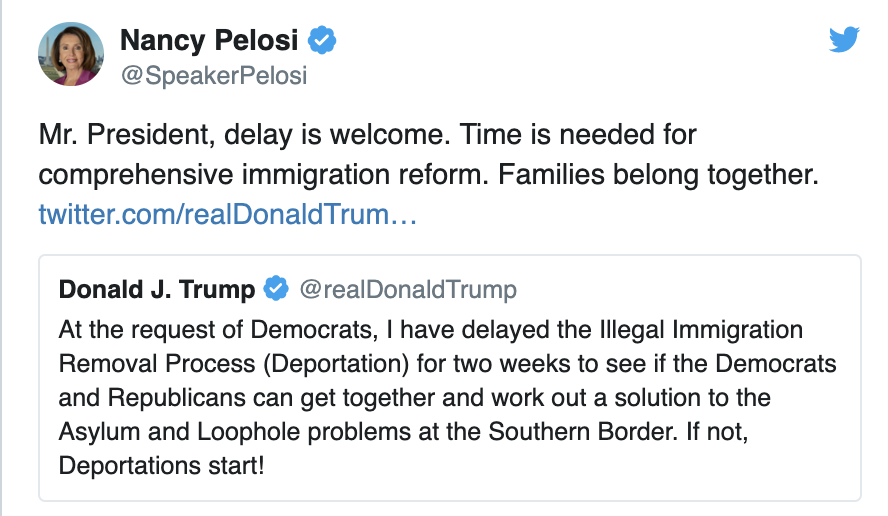In this blog post we cover where the top democratic presidential candidates stand on the issue of immigration. At the moment only three Republicans have announced their participation in the 2020 election, therefore we will focus on the democratic candidates until more Republican candidates have formally announced their presidential bids.
On the democratic front, over sixteen candidates have formally announced their participation in the 2020 Presidential election, with many more rumored to join their ranks in the coming months.
Over the last five months, presidential hopefuls, Former Vice President Joe Biden, U.S. Senator Bernie Sanders, U.S. Senator Kamala Harris, U.S. Senator Elizabeth Warren, and U.S. Senator Amy Klobuchar, have battled one another taking part in debates across the country. Not surprisingly, the topic of interest in these debates has turned to immigration.
Joe Biden
Joe Biden is a familiar face to all Americans, having served as former Vice President during the Obama administration for 8 years, but Joe Biden’s performances in the latest democratic debates have been lackluster at best.
In a recent debate moderators criticized Joe Biden for being part of an administration that was responsible for deported 3 million people, the most in United States history. When asked if he did anything to prevent the deportations, Biden deflected stating that his own power was limited and that the former President “did the best that was able to be done.”
Joe Biden has appeared weak on immigration. Although he has acknowledged that the American immigration system is broken, he has provided few solutions on how to unify Congress to pass comprehensive immigration reform. Joe Biden has also prioritized securing the South West border and publicly stated during debates that undocumented immigrants need to “get in line,” to obtain legalization like everyone else. Like his predecessors Joe Biden’s immigration policy prioritizes the entry of highly skilled immigrant workers, and fails to offer solutions to the millions of undocumented immigrants living and working in the United States for decades.
 Visa Lawyer Blog
Visa Lawyer Blog












